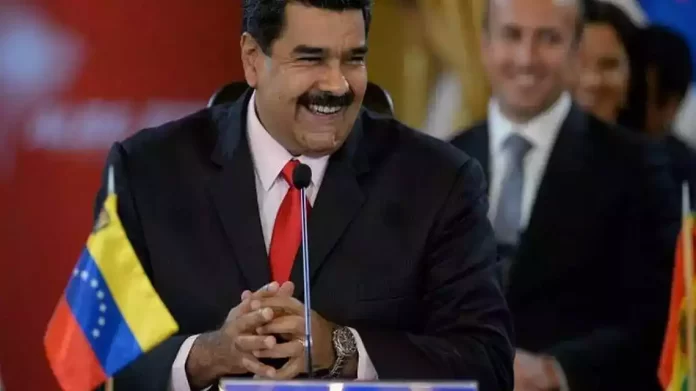Venezuelan dictator Nicolas Maduro has launched a shrewd charm offensive to seduce the Biden administration. He wants it to lift U.S. sanctions on his country.
The Biden administration should be careful not to fall into this trap.
Maduro rigged Venezuela’s 2018 elections and, according to United Nations data, has since been responsible for more than 7,000 extrajudicial executions. But he recently has made several political gestures that his allies describe as important concessions.
On May 4, Maduro’s rubber-stamping National Assembly named a new five-person National Election Council (CNE) that will include two independent members. The outgoing CNE was unanimously pro-Maduro and blindly validated all of his recent sham elections.
And on April 30, the regime released six imprisoned executives from the Houston-based Citgo corporation — five of whom are U.S. citizens — and allowed them to live under house arrest.
These and other moves have drawn calls from key U.S. legislators, some non-government groups and the Spanish government for the Biden administration to relax U.S. sanctions.
U.S. House Foreign Affairs committee chairman Gregory W. Meeks, D-New York, said in a statement that Maduro’s new CNE membership “marks an important step toward free and fair elections” and that Biden should “increase engagement with the Maduro government.”
The International Crisis Group, a U.S. peace advocacy organization, issued a statement calling the new CNE “an opportunity that should be seized.” It added that, “Washington should respond in kind with phased sanctions relief and diplomatic gestures that can be reversed if Venezuela backslides.”
But the problem is that Maduro has engaged in negotiations several times in the past that divide the opposition and drive a wedge in the international coalition that seeks democracy in Venezuela. And the dictator may be succeeding once again in dividing his rivals.
Venezuela’s opposition leader Juan Guaidó — recognized by the Biden administration as the country’s legitimate leader — immediately rejected Maduro’s newly appointed electoral tribunal. But former opposition candidate Henrique Capriles has welcomed it as “an indispensable first step,” indicating that he may run in future elections.
Risking being left out of the game, Guaidó on May 11 proposed a “National Salvation Accord” with the Maduro regime, dropping his earlier position that free elections could only be held without Maduro in power, and under a transitional government.
As a condition to negotiate with Maduro, Guaidó demanded, among other things, a timetable for presidential, legislative and local elections — not just local elections, as Maduro is offering — freedom of the press, release of political prisoners and permission for exiled opposition leaders to return to the country and run for office.
Guaidó added that his proposed national agreement with the government could include “the gradual lifting of sanctions,” on condition of the regime’s compliance with the deal’s main objectives.
The Biden administration says it supports Guaidó’s proposed accord.
James Story, the U.S. Ambassador to Venezuela, told me in a telephone interview that, “We support a comprehensive negotiated solution that addresses all the conditions necessary for free elections.” These include “the unconditional release of political prisoners, increased humanitarian aid access, freedom of the press, rehabilitation of political parties and politicians, and stopping attacks against civil society,” he added.
When I asked him about Maduro’s new CNE, Story responded, “It is insufficient for free and fair elections to take place.”
But, I would add, insufficient is not the same as unacceptable. The Biden administration should ask itself whether there can be a free election in Venezuela with a Chavista-dominated electoral tribunal.
Negotiating with a dictatorship to restore democracy is a tricky business. It worked in Chile’s 1988 plebiscite to bring down Gen. Augusto Pinochet’s dictatorship, and it worked in Nicaragua to hold the 1990 elections that ousted the Sandinista regime.
But it hasn’t worked in Venezuela, despite more than half a dozen rounds of negotiations over the past 20 years. Maduro has sometimes allowed opposition politicians to win local or legislative elections, only to strip them from their jobs later and replace them with loyalists.
If the Biden administration and Guaidó play their cards well and demand an all-or-nothing deal, they may beat Maduro at his own game. But if they make premature concessions by relaxing U.S. sanctions, Maduro will do what he has always done: Pretend to take a step backwards, and later take two steps forward to further consolidate his brutal regime.
Fuente: Miami Herald
BY ANDRES OPPENHEIMER









